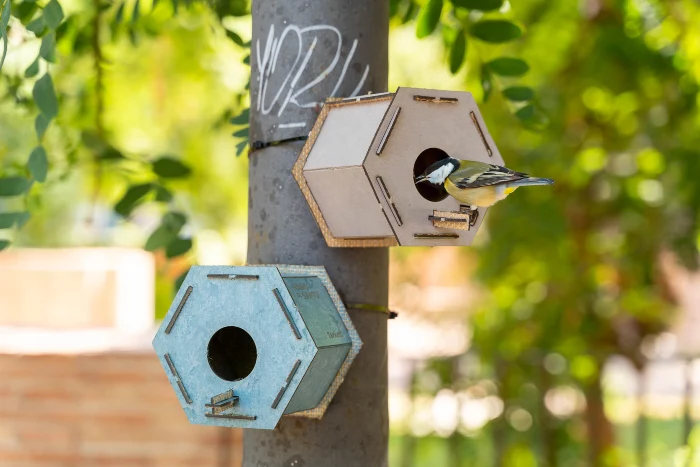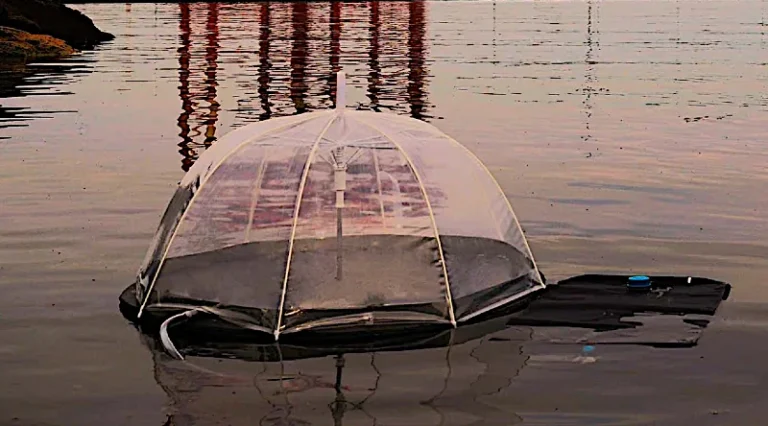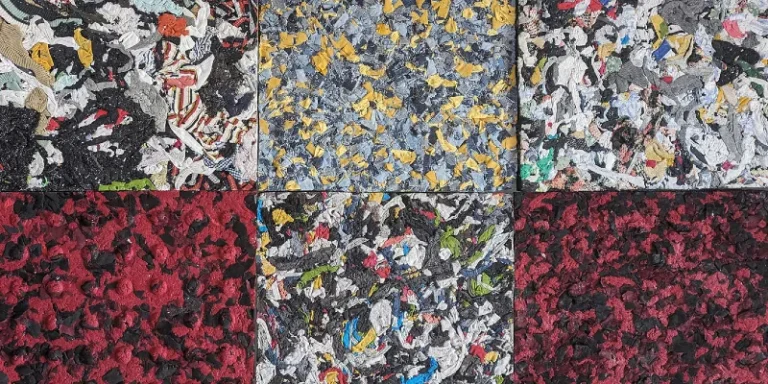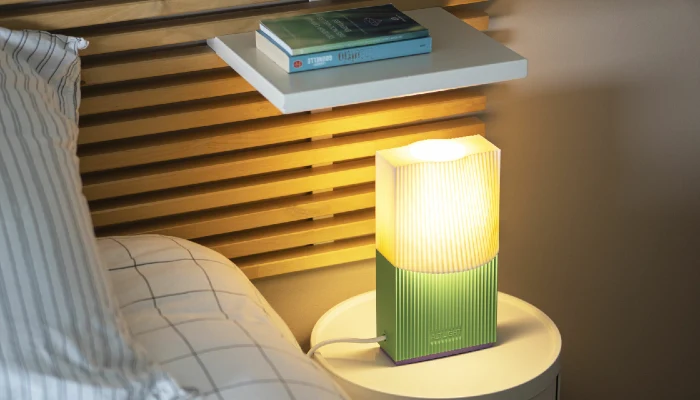In a world increasingly aware of the environmental footprints left by our choices, the emergence of products like ELVI, an urban birdhouse game, marks a step towards integrating sustainability into our daily lives.
This initiative is the result of a collaboration between Mano de Santo, a design studio, and Tarkett, a leader in flooring known for its commitment to eco-friendly practices. ELVI is more than just a birdhouse; it’s a statement on the potential of repurposing materials and fostering a harmonious relationship with urban wildlife.
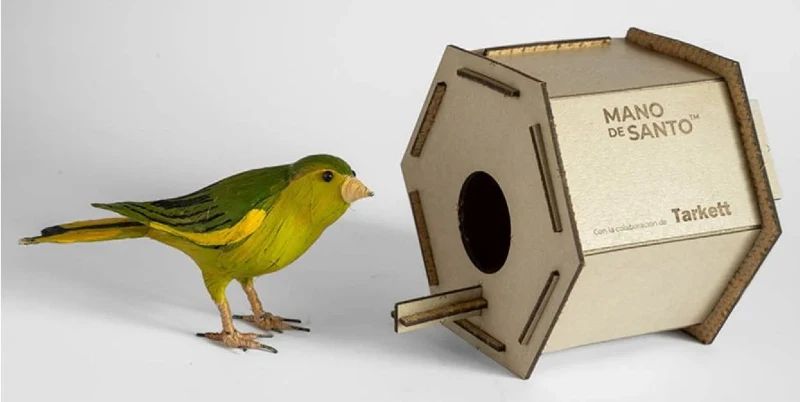
ELVI distinguishes itself from traditional birdhouses by using linoleum, a material commonly associated with flooring in schools and hospitals due to its durability and comfort. ELVI has the material serving a dual purpose by showcasing linoleum’s versatility and underscoring the importance of sustainable material use.
The birdhouse’s design is adaptable, allowing it to be placed in various urban settings such as streetlights, trees, and balconies, thereby beautifying these spaces while also serving a practical purpose.
One of the standout features of ELVI is its modular design, which invites users to engage in a hands-on assembly process. This DIY aspect not only adds a personal touch to the birdhouse but also acts as an educational experience.
By participating in the construction of their birdhouse, individuals gain a deeper understanding of the craftsmanship involved and the value of sustainable design practices. This approach encourages people, primarily children, to think more critically about their environmental impact and promotes active participation in green initiatives.
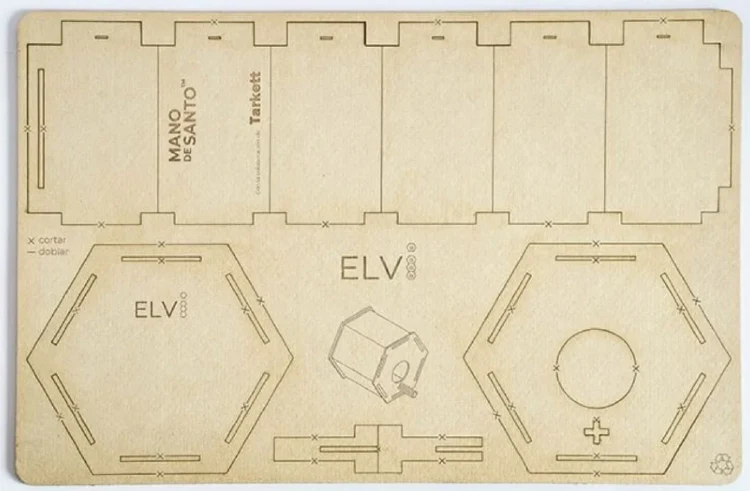
ELVI’s role extends beyond being a mere housing solution for birds; it serves as a teaching tool that enlightens users about the benefits of recycling materials like linoleum.
Tarkett, with its focus on environmental management, emphasizes that linoleum isn’t only recoverable but also recyclable, aligning with the company’s broader goals of reducing waste and promoting sustainability. The birdhouse exemplifies how everyday items can be repurposed, therefore reducing our ecological footprint and contributing to a more sustainable future.
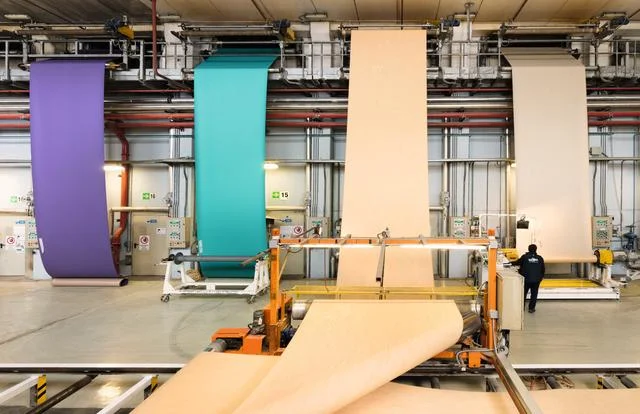
However, while ELVI represents a significant step towards promoting environmental awareness through design, let’s consider the full spectrum of its sustainability.
Questions such as the energy consumption involved in manufacturing the linoleum, the ecological impact of sourcing materials, and the overall lifecycle of the product are all part of whether ELVI is as sustainable as it could be.
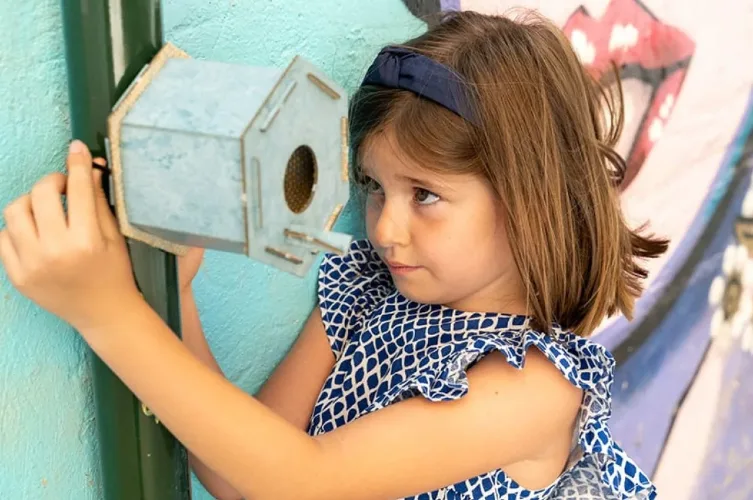
Additionally, while the initiative is commendable, the affordability and accessibility of such eco-friendly products remain crucial factors in determining their real-world impact. Ensuring that sustainable options like ELVI are within reach of a broader audience is vital for fostering widespread environmental responsibility.
Setting aside the few unanswered questions, ELVI isn’t just a testament to the aesthetic and functional versatility of linoleum; it symbolizes a shift towards more conscious design practices that respect our planet.
More To Discover
- Color-Changing Lid Alerts to Spoiling Food: A Simple Solution to Save Your Groceries, Lower Food Waste
- The Future of Sustainable Soundproofing Starts With Mushrooms
- Transforming Palm Trees into Eco-Friendly Building Materials: A Green Innovation to Tackle Construction Emissions
- Logitech Tackles Plastic Waste By Switching To Ancient Material
By merging beauty, functionality, and education, this urban birdhouse game invites us to reconsider our relationship with the materials we use and challenges us to think creatively about how we can coexist more harmoniously with nature, even in densely populated urban environments.
Meet The Designer: Mano de Santo
The Mano de Santo (Hand of Saint) architecture team is based in Valencia, Spain and led by Ana Gil, Francesc de Paula García and Francisco Miravete, working on project development, space creation and product design.










